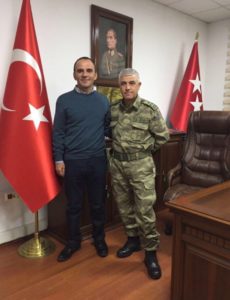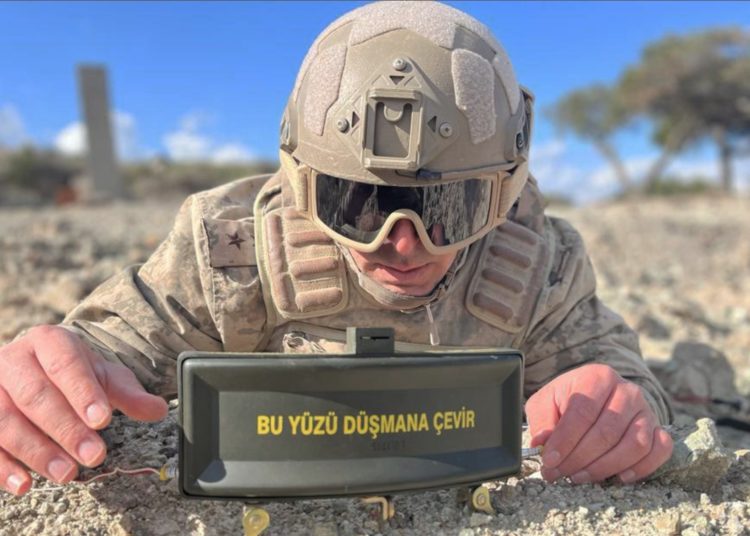Abdullah Bozkurt/Stockholm
Turkey is set to provide training to the Kuwait National Guard (KNG) on military and law enforcement matters according to an agreement recently submitted to the Turkish Parliament for approval.
The 22-article agreement, drafted in the form of a cooperation protocol, envisages sharing experience, information and technology in public security between the KNG and Turkey’s gendarmerie, a service branch of Turkish Interior Ministry that has become the subject of serious accusations, from involvement in organized crime to facilitating drug trafficking.
The deal would allow Turkey to set foot in another Gulf state due to a security arrangement after establishing a military base in Qatar, where it deployed troops from the Land Forces Command and plans to send thousands of Turkish police officers in the fall for the 2022 World Cup in Doha.
The agreement stipulates assistance in developing equipment to be used in the training and cooperation in experience and information exchange on common subjects without defining what those common subjects are. As part of the agreement, the parties will draw up an Annual Implementation Plan to flesh out the protocol and map out a way on how to proceed in practice.
All cooperation, exchange of documents and messages will be treated as classified and will remain so even after the expiry of the protocol, which is set for a year, with automatic renewal for another year.
Text of the protocol between Turkey and Kuwait:
Interestingly, no person on either side who is involved in executing the protocol is allowed to come to any sort of contact with the media, directly or indirectly, during his or her stay in the receiving state according to Article 9, meaning that both countries want to keep the cooperation out of the public spotlight.
The protocol with Kuwait, signed on September 14, 2017 but not yet ratified by parliament, bears the signatures of Turkish Gendarmerie Commander Gen. Arif Çetin and KNG Undersecretary Lt. Gen. Hashim Abdullrazaq Al-Refaiea.
Çetin has been facing a series allegations about his involvement in drug trafficking through Turkey and is accused of using the gendarmerie, tasked with protecting border areas and providing law enforcement in rural areas of the country, as couriers in moving illegal drugs.

According to Said Safa, a Turkish investigative journalist based in Canada, Çetin has been on the payroll of drug traffickers and is paid monthly for helping move a large volume of drugs through Turkey. He was also accused of links to organized crime syndicates, mafia groups and human traffickers.
Since 2014 the government of President Recep Tayyip Erdoğan has introduced a number of administrative and legislative changes to transform the gendarmerie into a partisan force, with massive purges of veteran officers from its ranks. The changes came immediately after the gendarmerie was involved in intercepting illegal arms shipments to jihadists in Syria in January 2014, exposing the Erdoğan government’s secret and illegal operation to arm jihadists using Turkish intelligence service MIT.
In 2016, the government subordinated the gendarmerie to the Interior Ministry, severing its connection to the General Staff, which had decided promotions in the ranks until then. After the massive purges, more personnel were recruited to the gendarmerie based on an ideological commitment to political Islamist and Turkish nationalist ideologies. According to the Gendarmerie General Command’s performance report for the year 2021, the service has 192,978 personnel.
Letter from President Recep Tayyip Erdoğan asking parliament to approve the protocol with Kuwait:












